G Into Gaming Awards: Cinzia Musio
October 5, 2020
At September’s GI.biz ‘Best Places to Work’ awards, G Into Gaming announced the third annual ‘G Into Gaming Award’ winner; our very own Diversity and Inclusion Advisor, Cinzia Musio.
So we took the opportunity to sit down with Cinzia to talk about Diversity and Inclusion at Splash Damage, the award, and how things have changed in the studio and industry over the past few years.
It’s a longer read, and we’ve also done our best to explain the many acryonyms we use in the studio.

Splash Damage: First of all, congratulations! How did you first get interested or involved in Diversity?
Cinzia: Thank you! When the first #MeToo movement first started, I decided to write down some of my own experiences in a previous industry. The act of talking about it, and the wave that it made in that circle, made a big difference, not only to me but to those people. Hearing their stories and the difference my words had made to them made me realise I didn’t want to let this happen to any more people!
I was at Splash Damage when I wrote that. One of the things that struck me early on about Splash, is that it’s always been really open to feedback and new ideas. So I decided to try and make positive changes here.
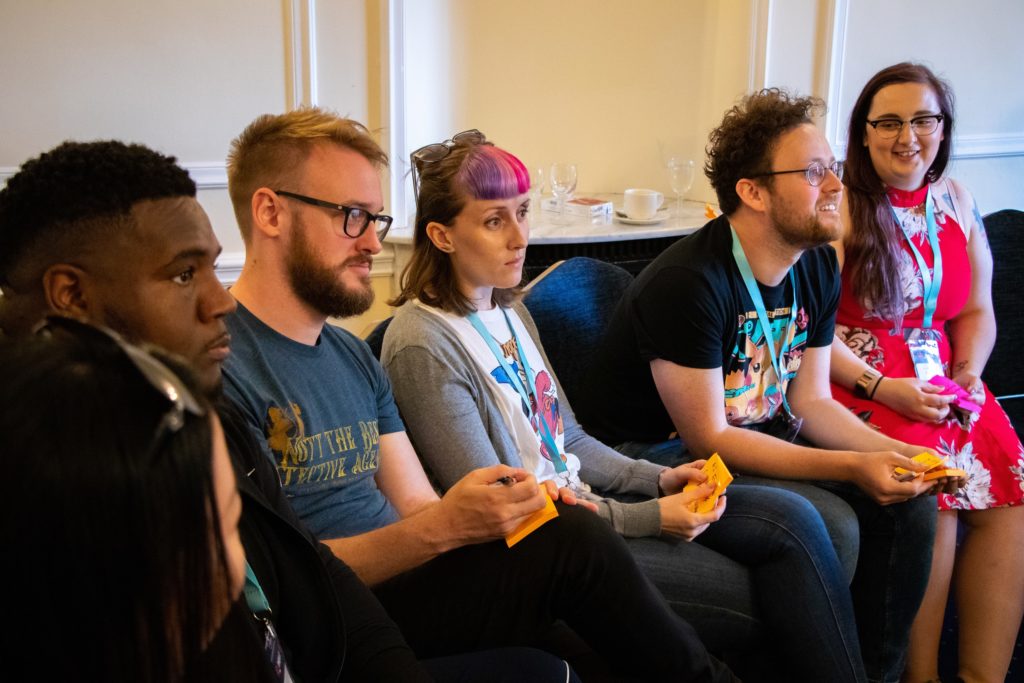
SD: We have SD_next now [a place where staff can pitch ideas and contribute to the direction and strategy of the studio in several key areas.] At one of these conferences the ‘Diversity SG’ [Steering Group] was born, was that our first foray into “official” diversity?
C: I think so. A group of us got together and pitched the idea to Senior Management, and then discussed it at SD_next. All of our ERGs [Employee Resource Groups] eventually spun out of that Steering Group.
In the group, we had Mac [Head of UI and Accessibility], Jack [LGBTQ+ ERG Lead], and Leanne, who was WASD [Women at Splash Damage] lead at the time, and a couple more. We were later joined by Reema [BAME ERG Lead]. Those ERGs were never an ask from the studio, but we decided to make them to provide support for marginalised groups in the studio, a place for them to connect and talk.
The biggest takeaway from the Diversity SG was that we need to talk about this stuff more; accessibility, inclusion, diversity etc. We thought that an easy way to start the conversation was to bring in an Unconscious Bias workshop to the studio.
SD: One avenue for people to give feedback or to pitch ideas is SD_next (an offsite workshop where staff get together to feed ideas into broader studio strategy). At one of these workshops a few years ago the ‘Diversity SG [Steering Group]’ was born, was that our first official foray into Diversity?
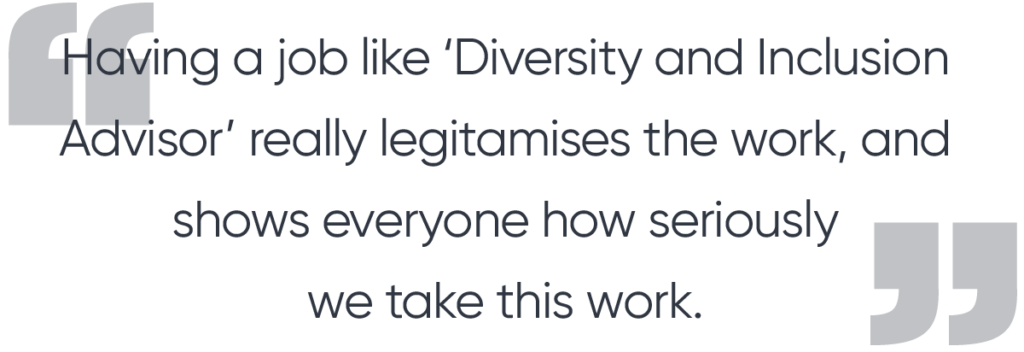
SD: We’ll come back to the Unconscious Bias workshop, but before that started what were we focusing on? Was there anything else born out of the Diversity SG that paved the way for what we have now?The biggest takeaway from the Diversity SG was that we need to talk about this stuff more; accessibility, inclusion, diversity etc. We thought that an easy way to start the conversation was to bring in an Unconscious Bias workshop to the studio.
C: ERGs are the biggest one. I’m really proud of these groups. Rich [Splash Damage CEO] would join some of these ERG meetings and just listen to people’s experiences at Splash and their lives more generally. There has been so much acceptance and support from everyone at the studio, which is awesome.
We also re-evaluated our meeting culture. We have a lot of introverts here, so we came up with some actions and guidelines to make sure everyone in meetings gets a chance to be heard.

SD: Then the Unconscious Bias Workshop started. You’ve done dozens of them now, both for the studio and the wider industry, but for people who don’t know what an Unconscious Bias Workshop is, or even unconscious bias, what is it?
C: It’s an hour or so of chatting through examples, data, and case studies of different ways marginalised groups get impacted in their lives because of ‘unconscious bias.’ We all have it, we can’t help it, it’s wired into us through our upbringing, through media, through culture etc. The workshop is designed to look at how these things can impact people, and how unconscious bias can impact the decisions we make in life.
SD: That can be a hard thing for lots of people to grasp, right? None of us like to think we’ve got any prejudices (unconscious or otherwise). Have you learned anything from people like this who have taken your workshop so far?
C: The first thing I tell people is; the workshop isn’t telling you that you’re thinking wrong. Far from it! That’s the biggest conversation I’ve had with people, I think, drawing that line between unconscious bias and conscious bias or prejudice.
The other thing I’ve picked up on is that the workshop is very gender-focused, binary gender-focused in particular. People have asked me about class, disabilities, race, sexual orientation etc and the answer is — there isn’t enough research done in these areas yet (at least that I’ve found — if anyone reading this has good data in these areas please do get in touch!)
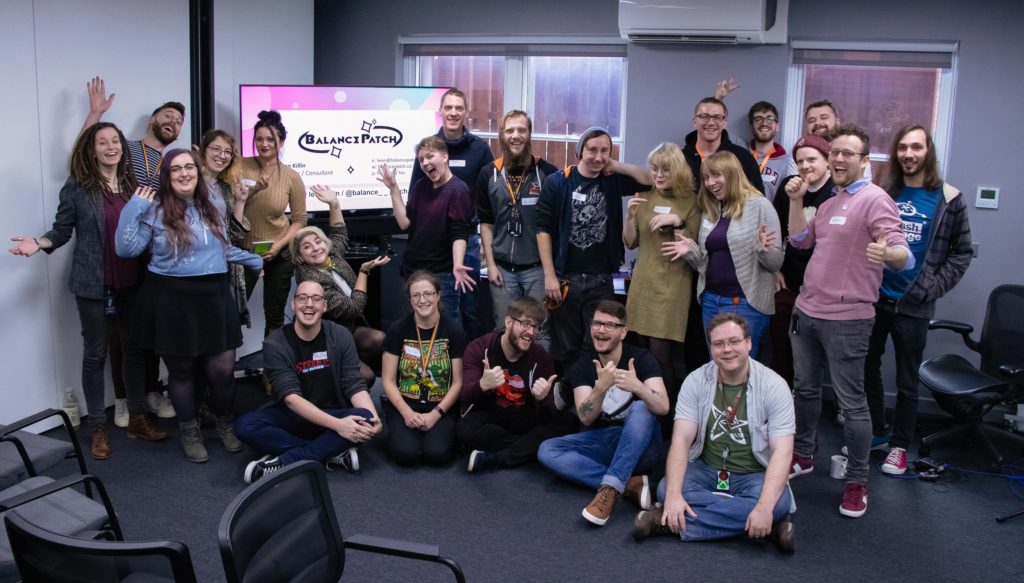
SD: Diversity over the past 2 or 3 years has become a much more prominent discussion in our industry. We see a lot of studios talking about it, or UKIE focusing on it [who recently did a census of the UK Games Industry], GI.biz and Game Dev Heroes have award categories that recognise it etc. But for studios or companies out there that are approaching this for the first time; what advice would you give them? Where should they start?
C: The really cool thing about the industry now is there’s a lot of people and resources you can turn to. You can sign up to UKIE’s ‘Raise the Game‘ pledge, speak to POC In Play, speak to Code Coven, or Out Making Games, Level Up Link Up, or Balance Patch! All of these people and many more can help you, and give you an idea of what you need to do first.
Secondly, speak to marginalised people in your company or studio. Maybe they have some needs that you aren’t addressing, or there’s something they’ve not been comfortable bringing up with you.
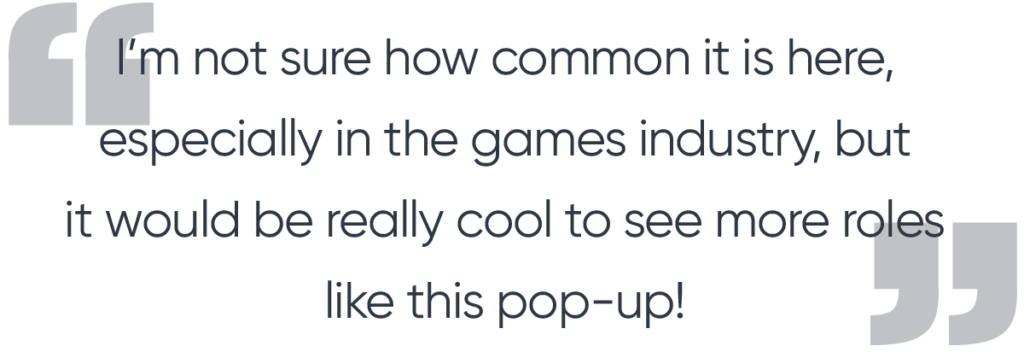
Don’t rely on them to teach you things, that’s where you should refer back to the first point; learn from people who are willing, or make it their business, to teach.
Thirdly, if you’re not in senior leadership and you’re looking into this stuff, your priority needs to be getting your leadership layer on board. There is a lot you can do without them, but you’ll reach a point where you want to change something, or you need a budget, and you’ll need their support and buy-in.
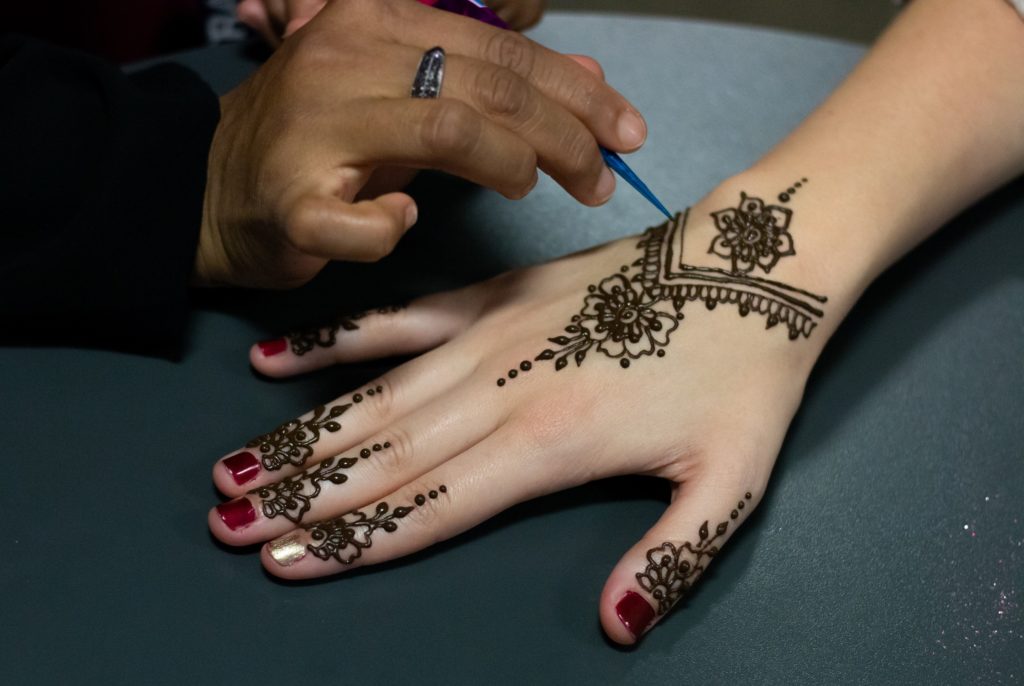
SD: Thinking about diversity wasn’t a part of your role when you joined Splash Damage. However, you’re now officially recognised as ‘Diversity and Inclusion Advisor.’ Has that been one of the biggest signs of buy-in? Has it allowed you to do more?
C: Having a job like ‘Diversity and Inclusion Advisor’ really legitimises the work, and shows everyone inside the studio and out of it how seriously we take this work. We’ve seen people via our internal survey system talk about how seeing that commitment makes them proud to work here, which is amazing.
One of the biggest changes is now D&I [Diversity and Inclusion] has an official budget. We always found the budget for it, but now it’s an official thing.
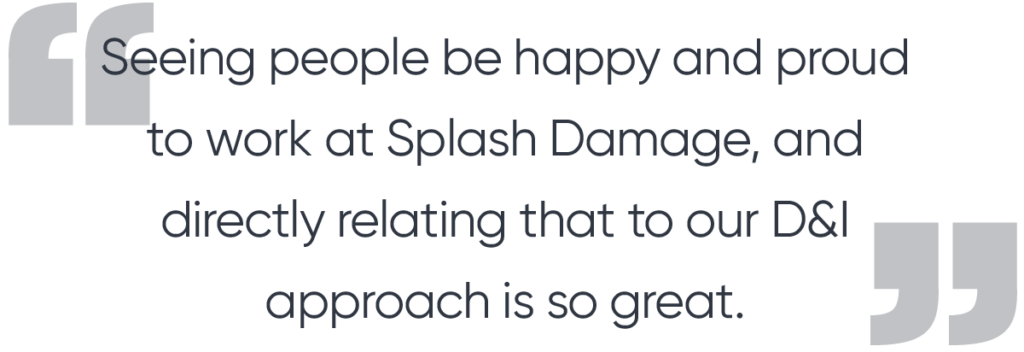
SD: Is this a role that’s common in the industry?
C: It’s more common in the US, I think. Big companies, big corporate companies, take D&I very seriously. I’m not sure how common it is here, especially in the games industry, but it would be really cool to see more roles like this pop-up!
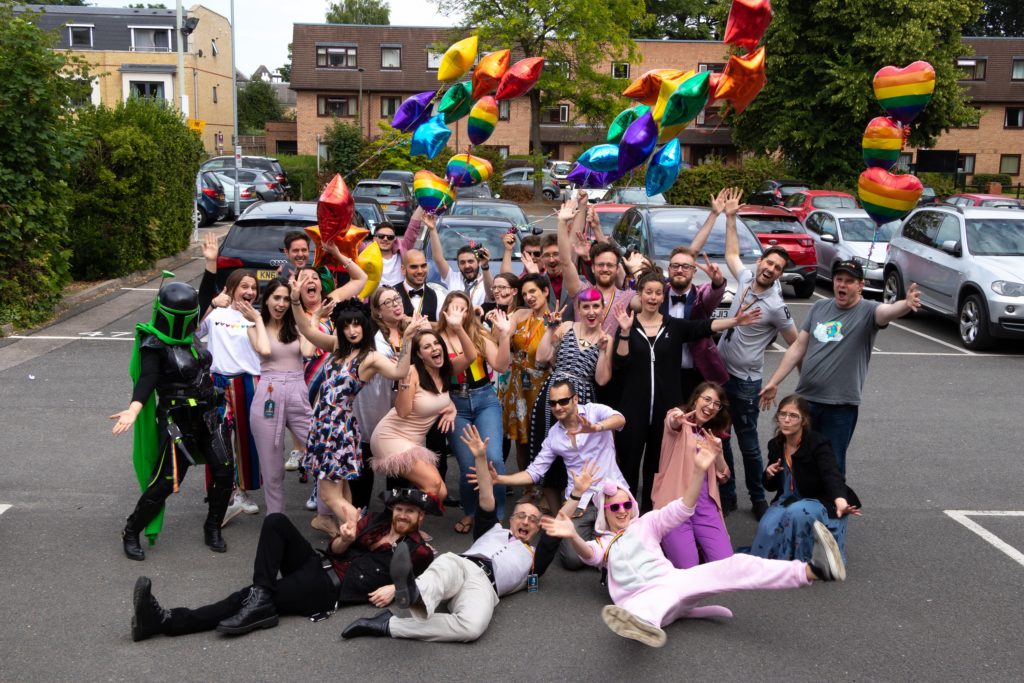
SD: You’ve been here just over three years. In that time, what do you think are some of the biggest D&I achievements we’ve made?
C: Oh wow. I think it’s difficult to pinpoint it, since a lot of progress we’ve made has been incremental…
I think the way we’ve celebrated pride in such a big way has been awesome, as has the rise of other D&I focused events (like World Culture Day, International Women’s Day, Global Accessibility Awareness Day, or some events around mental health). Seeing the wider studio engage with these events has been so satisfying.
Seeing people be happy and proud to work at Splash Damage, and directly relating that to our D&I approach is so great. We’ve also spoken before about people who have applied to work here because they’ve seen our efforts around these events.
I’m so excited for some of the plans we have over the next couple of years.
